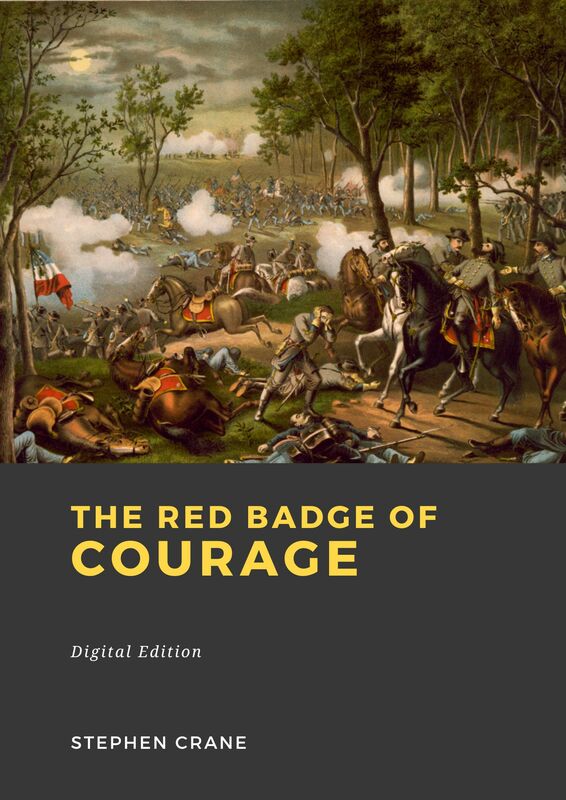
The Red Badge of Courage
Stephen Crane
The Red Badge of Courage
Stephen Crane
Stephen Crane's "The Red Badge of Courage" is a timeless masterpiece that immerses readers in the harrowing experience of war. Set against the backdrop of the American Civil War, this novel follows the journey of Henry Fleming, a young soldier grappling with fear, courage, and the harsh realities of battle. As Henry leaves his farm and joins the Union Army, he is driven by a romanticized vision of war. However, when he faces the chaos and violence of the battlefield, his bravado fades, and he becomes consumed by self-doubt. Crane skillfully explores Henry's internal struggles, making this novel a profound examination of the human psyche under extreme pressure. The title, "The Red Badge of Courage," refers to the injuries soldiers wear as symbols of their bravery. Through Henry's eyes, we witness the transformation of a frightened youth into a battle-hardened soldier. The novel navigates themes of heroism, cowardice, and the unpredictable nature of conflict. Crane's vivid prose thrusts readers into the heart of the Civil War, evoking the sights, sounds, and emotions of combat. His portrayal of the psychological toll of war remains hauntingly relevant to this day, resonating with anyone interested in the human experience during times of crisis. "The Red Badge of Courage" is not just a war novel; it's a profound exploration of the human condition. It challenges our understanding of bravery and cowardice and offers a gripping narrative that continues to captivate readers, reminding us of the enduring impact of war on individuals and societies.
A propos de l'auteur
Stephen Crane, born on November 1, 1871, in Newark, New Jersey, was an American novelist and short story writer. He gained fame for his realistic depiction of war and his keen understanding of human nature. Crane's most renowned work, "The Red Badge of Courage," published in 1895, is a gripping novel that explores the psychological turmoil of a young soldier during the American Civil War. It's celebrated for its vivid portrayal of fear, bravery, and the harsh realities of battle. In addition to his Civil War novel, Crane wrote impactful short stories, including "The Open Boat" and "The Blue Hotel," known for their naturalistic style and exploration of human behavior under extreme conditions. Tragically, Crane's life was cut short when he passed away at the age of 28 in 1900, but his literary contributions continue to be recognized and admired for their insightful examination of the human experience, particularly in the face of adversity.